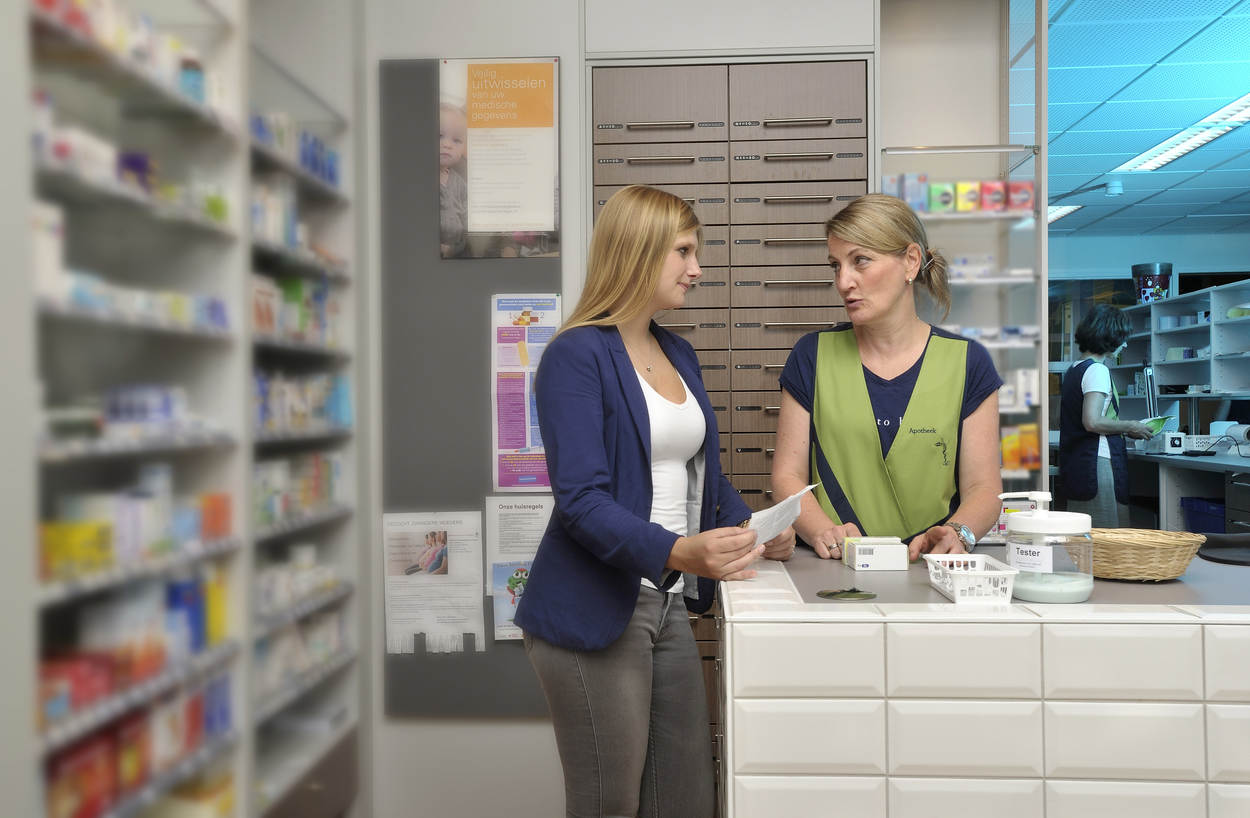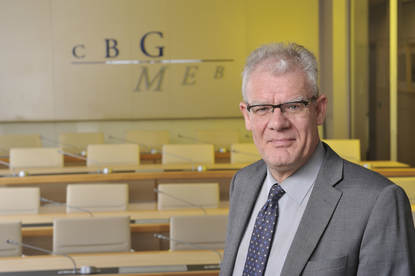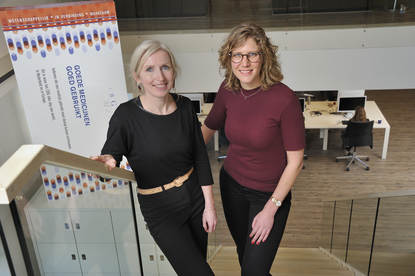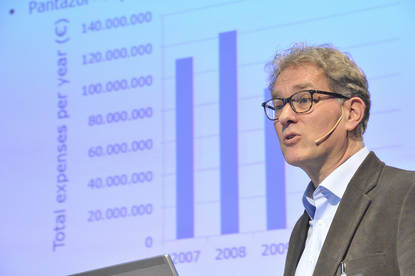A good connection between science and practice is essential for the Medicines Evaluation Board (MEB) in order for it to be able to fulfil its role properly in the interest of Dutch patients. The MEB's attention was focused on this again in 2017. The MEB redefined its positioning in April:
Anyone who uses medicines should be able to trust them. The MEB is dedicated to fulfilling this mission every single day, in the Netherlands and in Europe. Good medicines used better.
The MEB implements its positioning in various ways. The Members of the Medicines Evaluation Board work in the clinical and scientific practice and have also been chosen because they have a keen eye for innovative developments. In specific cases, the MEB works together closely with the Dutch Ministry of Health, Welfare and Sport (VWS) and it maintains contacts with patient, physician and pharmacist organisations. The Strategic Business Plan (2014-2018) covers the whole life cycle of a medicine. The result: strategic ambitions are substantiated together with stakeholders. A lot of attention is paid to a patient-oriented evaluation of medicines, promoting better use and stimulating innovation.
In 2017, the MEB strengthened existing and entered into new collaborations in the field of science, clinical practice and chain partners. The establishment of the core group patient, consumer and professional organisations within the MEB provides an important contribution to structurally involving these stakeholders in the MEB's work.
Better use of medicines
The Better Use programme was launched in 2017. Improving the information provision for both healthcare providers and patients is a central focal point in this programme, which is in line with the MEB's ambition and strategy to stimulate the correct use of medicines.
The MEB has made an important contribution to setting up the ‘Medicine shortages and defects notification centre’. For the first time, there is now one point of contact with a standardised reporting form. The MEB and the Dutch Health and Youth Care Inspectorate (IGJ, formerly IGZ) together coordinate the notification centre.
Another example of the improvement of the information provision is the pilot ‘Important latest medicine information’. The objective is to ensure that risk information with regard to medicines is made available to healthcare providers sooner and better. The pilot is a collaboration of the MEB with the Health Care Institute of the Netherlands (ZIN), Health and Youth Care Inspectorate (IGJ), the Netherlands Pharmacovigilance Centre Lareb, the Medicinal Products Bulletin (Gebu) and the Institute for Responsible Use of Medicinal products (IVM).
Consultations are held at an executive level with various chain partners regarding the manner of cooperation and the exchange of information. The further formalisation of the collaboration with ZIN and Lareb in the form of agreements is currently being examined. The MEB experiences the cooperation with the pharmaceutical industry umbrella organisations in the Authorisation Contact Committee (CCR) Regular and Practice as very useful. For instance, the umbrella organisations point out possible ‘blind spots’ to the MEB and provide valuable input on new developments.
Science and practice
‘Generic medicines in society: The dilemma of the regulator’ was the theme of the MEB Science Day. Attention was paid to the doubts among prescribers regarding the reliability of generic medicines, in spite of the fact that these medicines have been assessed and authorised. A PhD research project of one of the MEB's assessors (May 2017) shows that generic medicines are indeed as good as branded medicines. Nevertheless, patients regularly report complaints when switching between innovator and generic medicines and between different generic medicines. The MEB takes these complaints very seriously. Experience has shown that large-scale conversion of medicines in a short period of time can lead to problems. It is also clear that it is essential when switching between medicines that doctors and pharmacists provide good and clear information.
The MEB can help with this by providing clear information. The MEB published a leaflet in 2017 with answers to questions about generic medicines for consumers and healthcare providers and this was received very positively. This encourages us to continue along this path.
Three editions of the Regulatory Science Magazine were published in 2017. This digital magazine is intended for everyone who is interested in how changes in scientific insights and the development and use of medicines influence the regulatory field and bring about change.
Veterinary medicines: new European regulations
The finalisation of work in Brussels on two important European regulations for veterinary medicines neared completion in 2017. The Netherlands was able to play its role in the formulation of the final texts of the new regulations through the MEB Veterinary Medicinal Products Unit.
MEB and novel foods
The MEB Botanicals and Novel Foods Unit provided assistance to the Dutch Ministry of Health, Welfare and Sport (VWS) with the transfer of the responsibility for the assessment of the safety of novel foods to the European Food Safety Authority (EFSA). The years of experience of the Dutch assessors in this area proved to be extremely useful for both the European Commission and the EFSA. After 25 years, the advisory committee for the Safety of Novel Foods stopped its very valuable work for the MEB and the Ministry of Health, Welfare and Sport and was dissolved at the end of 2017.
EMA, Brexit and international cooperation
During the whole of 2017, the future consequences of the Brexit could already be felt. 20 November 2017 is carved into our memory as the day on which the European Ministers of Foreign Affairs decided to relocate the European Medicines Agency (EMA) from London to Amsterdam in 2019. The MEB worked together closely with the Dutch Ministry of Health, Welfare and Sport (VWS) and the ambassador of the Dutch bid for the EMA, Wouter Bos, to make this mission a success. Not only did the MEB prepare itself, with the support of VWS, by expanding its own capacity to take over work from the United Kingdom in the European network.
The MEB also set up an International Collaboration Programme with the support of the Dutch government. The aim of this programme is to strengthen the European regulatory network from within. The whole network is being strengthened by helping medicine agencies in other Member States of the EU, which currently play a modest role in the European assessment work, with the expansion of their capacity and expertise. This should make it possible to spread the workload in Europe better and more evenly and to facilitate a closer collaboration between the Member States. 10 European countries have signed up for the programme. The MEB hopes to thus build sustainable relationships in order to be able to work together in the future bilaterally and multinationally with colleague agencies in other countries in the assessment of medicines. This clearly has a promising future.
Ton de Boer, Chair
Hugo Hurts, Secretary/Director










